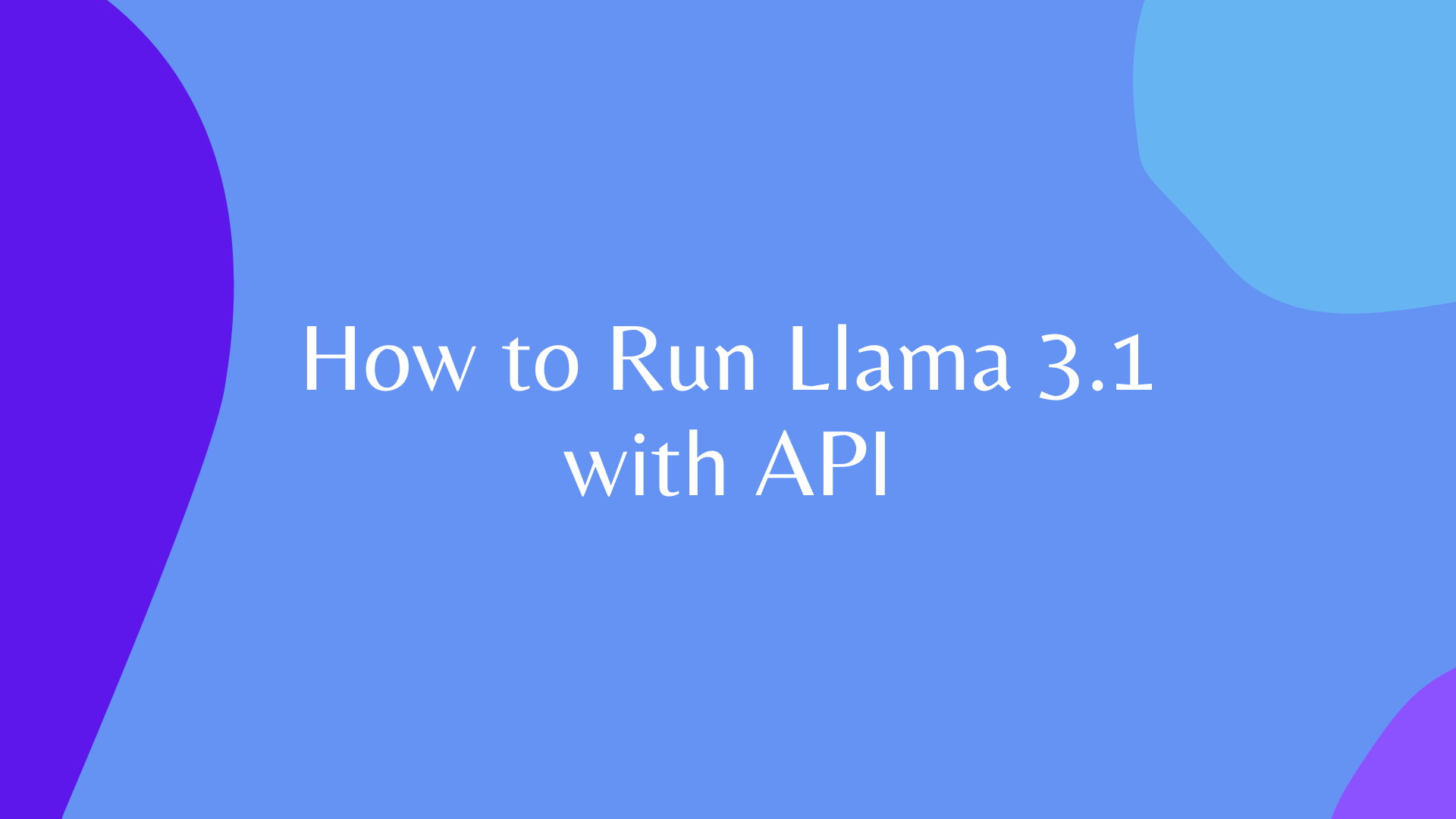Meta has unveiled Llama 3.1, the most capable and advanced version of its open source AI models to date. This release marks a significant leap in AI development by not only enhancing performance but also ensuring that the technology remains openly accessible and beneficial for both developers and the broader global community.
What is Meta Llama?
Meta Llama is an open-source language model developed by Meta AI, designed to facilitate research and development in natural language processing (NLP) and artificial intelligence (AI). It is a foundational model that can be fine-tuned for various tasks, such as question answering, text generation, and sentiment analysis.
What is Meta Llama 3.1?
Meta Llama 3.1 is the latest and most advanced version of Meta's open-source AI model series. It represents a significant leap in the capabilities and accessibility of AI technology, designed to rival the best closed-source models in the industry.

Key Features and Capabilities of Meta Llama 3.1
Here’s an in-depth look at what makes Llama 3.1 stand out:
1. Frontier-Level AI Model—Llama 3.1 405B
Llama 3.1 405B is the first frontier-level open-source AI model, boasting 405 billion parameters. It excels in various tasks, including general knowledge, steerability, mathematics, tool use, and multilingual translation.
2. Expanded Context Length
The model can handle much longer sequences of text, with a context length of 128K. This is particularly useful for tasks that involve long-form content generation and complex problem-solving.
3. Multilingual Support
Llama 3.1 supports eight different languages, making it more versatile and effective in multilingual applications such as translation and global customer service.
4. Innovative Workflows
The model supports the generation of synthetic data, which can be used to improve and train smaller models. This feature allows for the creation of smaller, yet highly efficient models from the large Llama 3.1, enabling a broader range of applications.
5. Enhanced Model Evaluations
Evaluated on over 150 benchmark datasets, Llama 3.1 has proven competitive with leading models like GPT-4 and Claude 3.5 Sonnet in various real-world scenarios.

6. Advanced System Integration
Meta provides additional components that work with Llama 3.1, including a reference system, which empowers developers to create custom agents and new types of agentic behaviors. New tools such as Llama Guard 3 and Prompt Guard ensure responsible and safe AI development.
7. Llama Stack API
Llama Stack API aims to facilitate third-party projects in leveraging Llama models, promoting easier interoperability and collaboration within the community.
8. Broad Ecosystem Support
With over 25 partners, including AWS, NVIDIA, Databricks, and Google Cloud, Llama 3.1 is well-supported and integrated, making it accessible for immediate development and deployment.
Llama 3.1 models

The Meta Llama 3.1 collection, including 8B, 70B, and 405, represents the latest advancement in Meta’s suite of multilingual large language models (LLMs). These models are designed to handle diverse and complex natural language processing tasks with exceptional performance.
1. Llama 3.1 405B
The Llama 3.1 405B model is the flagship of the series, boasting frontier-level capabilities that rival the best closed-source models available.
Key Features:
- Model Size: 405 billion parameters, positioning it as one of the most powerful open-source AI models.
- State-of-the-Art Capabilities: It excels in general knowledge, steerability, mathematical reasoning, tool use, and multilingual translation.
- Extended Context Length: Supports context lengths up to 128K tokens, allowing for handling extensive and complex data inputs.
- Multilingual Support: Includes support for eight languages, making it versatile for global applications.
- New Workflows: Enables innovative workflows like synthetic data generation and model distillation.
Applications:
Ideal for creating advanced AI applications that require extensive knowledge and reasoning capabilities, such as sophisticated chatbots, multilingual support systems, and complex data analysis tasks.
2. Llama 3.1 70B
The Llama 3.1 70B model serves as the mid-tier option in the series, balancing power and efficiency.
Key Features:
- Model Size: 70 billion parameters, providing strong performance while being more resource-efficient than the 405B model.
- Extended Context Length: Also supports context lengths up to 128K tokens.
- Multilingual Capabilities: Enhanced support for multiple languages.
- Tool Use and Reasoning: State-of-the-art tool use and improved reasoning capabilities.
Applications:
Suitable for applications that require robust performance but have more constrained computational resources, such as multilingual virtual assistants, medium-scale data analysis, and educational tools.
3. Llama 3.1 8B
The Llama 3.1 8B model is the entry-level model in the series, designed to be accessible while still offering advanced capabilities.
Key Features:
- Model Size: 8 billion parameters, making it an efficient option for less resource-intensive tasks.
- Context Length: Supports the extended context length of 128K tokens.
- Multilingual Support: Capable of handling multiple languages effectively.
- Enhanced Efficiency: Optimized for scenarios where computational resources are limited.
Applications:
Perfect for lightweight applications such as small-scale chatbots, initial prototyping of AI systems, and real-time data processing.
How to Get Access to Meta Llama 3.1?
According to the official news, Meta AI is available in English in these countries: America, Australia, Canada, Ghana, Jamaica, Malawi, New Zealand, Nigeria, Pakistan, Singapore, South Africa, Uganda, Zambia and Zimbabwe. However, the company is expanding its reach globally and is likely to include additional countries in the future.

For developers located in these countries, Llama 3.1 is available for download on llama.meta.com, Hugging Face and Kaggle, making it accessible for immediate development. You can also get the model in Meta's partner platform.
Pro tip: Apidog can help test the API and streamline the development process. It is free! Try it today!
For users who live in countries where Meta AI is available, they can get access to Llama 3.1 on Meta.ai and WhatsApp.
Meta Llama 3.1 Pricing
It's important to note that while Meta Llama 3.1 is open-source and freely available, it is subject to certain usage restrictions and licensing terms. Be sure to review and adhere to these guidelines before incorporating the model into your projects.
However, using the hosted inference API will incur costs. The following outlines the pricing structure:

Check out the newest pricing on this page: https://llama.meta.com/.
Will Meta Llama 3.1 be Available in Europe?
As of the latest release, Meta has decided not to make Llama 3.1 available in Europe. The decision stems from concerns over the unpredictable nature of the European regulatory environment. This means that, while Llama 3.1 can be accessed and utilized in other regions, European users and developers will not have direct access to this advanced AI model for the time being.
Conclusion
Meta Llama 3.1 represents a significant milestone in the development of open-source language models. With its improved performance, multilingual support, and efficient fine-tuning capabilities, it empowers researchers and developers to build advanced NLP applications across a wide range of domains and languages. By providing comprehensive documentation and tutorials, Meta AI has made it easier than ever to access and utilize this powerful tool. So, whether you're a seasoned NLP practitioner or just starting your journey, Meta Llama 3.1 is worth exploring for your next project.





